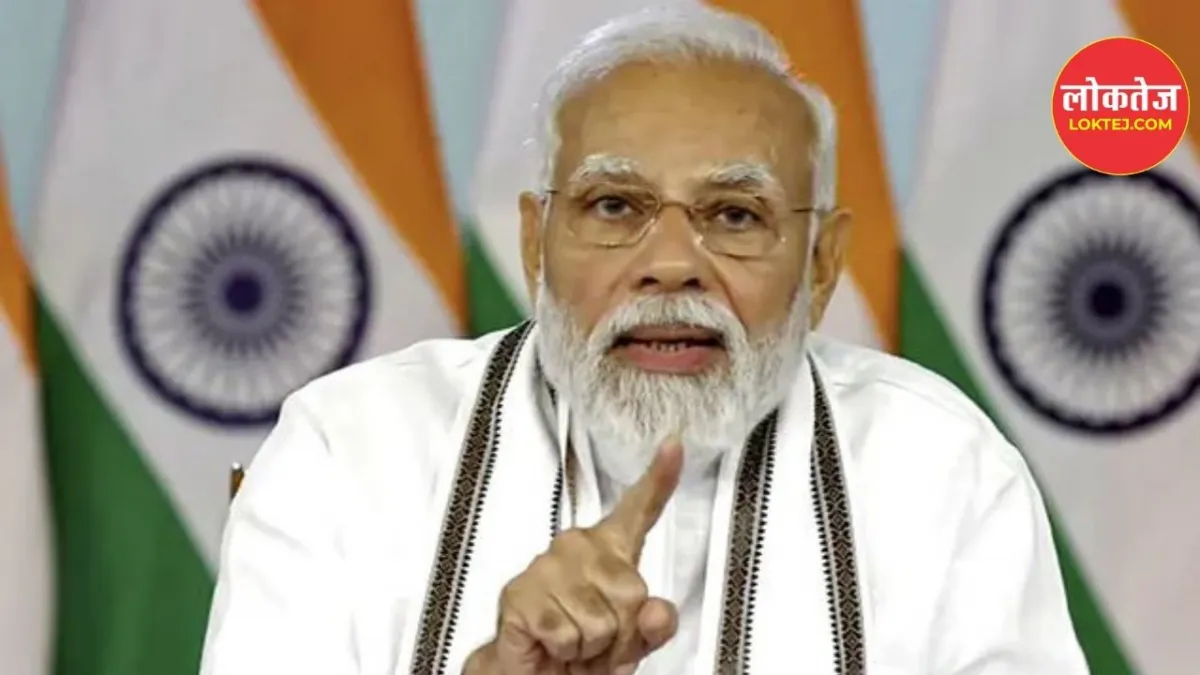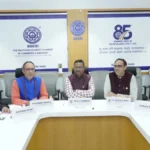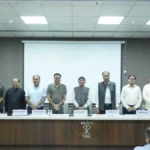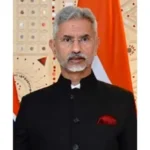Prime Minister Narendra Modi addressed the nation on Sunday during the 125th episode of his monthly radio program ‘Mann Ki Baat’. He extended his best wishes to the citizens for Ganeshotsav and the upcoming festivals. He also placed special emphasis on adopting swadeshi (domestically produced goods) and promoting cleanliness.
PM Modi’s address in ‘Mann Ki Baat’ generated enthusiasm among the citizens and delivered a message to raise awareness about swadeshi during the festive season. He mentioned that the country is currently immersed in the celebrations of Ganeshotsav, and the vibrancy of various festivals will continue in the coming days.
PM Modi appealed to the citizens to prioritize swadeshi in these festivals. He said, “Gifts should be those made in India, attire should be that woven in India, decorations should be with Indian goods, and lighting should be with Indian-made lamps.”
Urging the adoption of swadeshi in every need of life, he said, “Say with pride, this is swadeshi.” He reiterated the mantra of ‘Vocal for Local’ and described ‘Aatmanirbhar Bharat’ (Self-Reliant India) as the only path towards a ‘Viksit Bharat’ (Developed India). He said, “Adopting swadeshi not only promotes economic self-reliance but also strengthens the country’s cultural identity.”
Furthermore, PM Modi stressed the cleanliness campaign, stating that the Swachh Bharat Mission needs to reach every citizen. He appealed to the people to keep their surrounding areas clean and to make this campaign a mass movement.
He said that both cleanliness and swadeshi are the foundations of a self-reliant and developed India. He specifically called upon the youth to draw inspiration and contribute to achieving these goals.
Mann Ki Baat
“Mann Ki Baat” is a monthly radio program hosted by the Prime Minister of India, Narendra Modi, which first aired in October 2014. It serves as a platform for the Prime Minister to directly address and connect with the citizens of India, discussing a wide range of social, cultural, and developmental issues. The program is a significant modern cultural phenomenon that utilizes mass media to foster a sense of community and national participation.
Ganeshotsav
Ganeshotsav is a vibrant ten-day Hindu festival celebrating the elephant-headed deity Lord Ganesha. It was popularized as a public community event in the late 19th century by Indian freedom fighter Lokmanya Tilak to foster unity and nationalism against British colonial rule. The festival is marked by the installation of elaborately crafted idols, devotional singing, and processions, culminating in the immersion of the idols in water.
Swadeshi
“Swadeshi” refers to a key movement in India’s struggle for independence, originating in the early 20th century as a strategy of economic nationalism. It advocated for the boycott of British goods and the revival of domestic products and industries. The movement played a crucial role in fostering Indian national identity and was a major part of the broader campaign for self-rule.
Vocal for Local
“Vocal for Local” is not a specific place or cultural site, but rather a popular slogan and movement in India that encourages consumers to support and purchase locally made products and services. It was prominently promoted by the Indian government to strengthen domestic economies, especially during and after the COVID-19 pandemic. The movement aims to foster self-reliance, celebrate indigenous craftsmanship, and boost small-scale industries and artisans across the country.
Aatmanirbhar Bharat
“Aatmanirbhar Bharat” (Self-Reliant India) is not a physical place but a major national policy initiative launched by the Indian government in 2020. Its history is rooted in the goal of making India a self-sustaining and resilient economy by promoting local manufacturing, reducing dependency on imports, and fostering indigenous innovation. The vision draws inspiration from India’s historical self-reliance movements and aims to transform the country into a leading global powerhouse.
Viksit Bharat
“Viksit Bharat” (Developed India) is not a physical place or cultural site, but a national initiative and vision for India’s future. It is a government-led campaign outlining goals for comprehensive national development by 2047, the 100th year of India’s independence. The vision encompasses progress in economic growth, infrastructure, technology, and social welfare.
Swachh Bharat Mission
The Swachh Bharat Mission (Clean India Mission) is a nationwide campaign launched by the Government of India in 2014 to eliminate open defecation and improve solid waste management. Historically, it is the largest cleanliness drive in the country and was inspired by Mahatma Gandhi’s vision of a clean India. The mission has been instrumental in constructing millions of household toilets and significantly increasing sanitation coverage across India.
Self-Reliant India
“Self-Reliant India” (Atmanirbhar Bharat) is a major national policy initiative launched by the Indian government in 2020. Its goal is to make India a self-sufficient and resilient economic power by promoting local manufacturing, reducing imports, and boosting domestic supply chains. While not a physical site, it is a modern cultural and economic movement deeply rooted in the historical principles of self-reliance and swadeshi that were central to India’s independence struggle.






